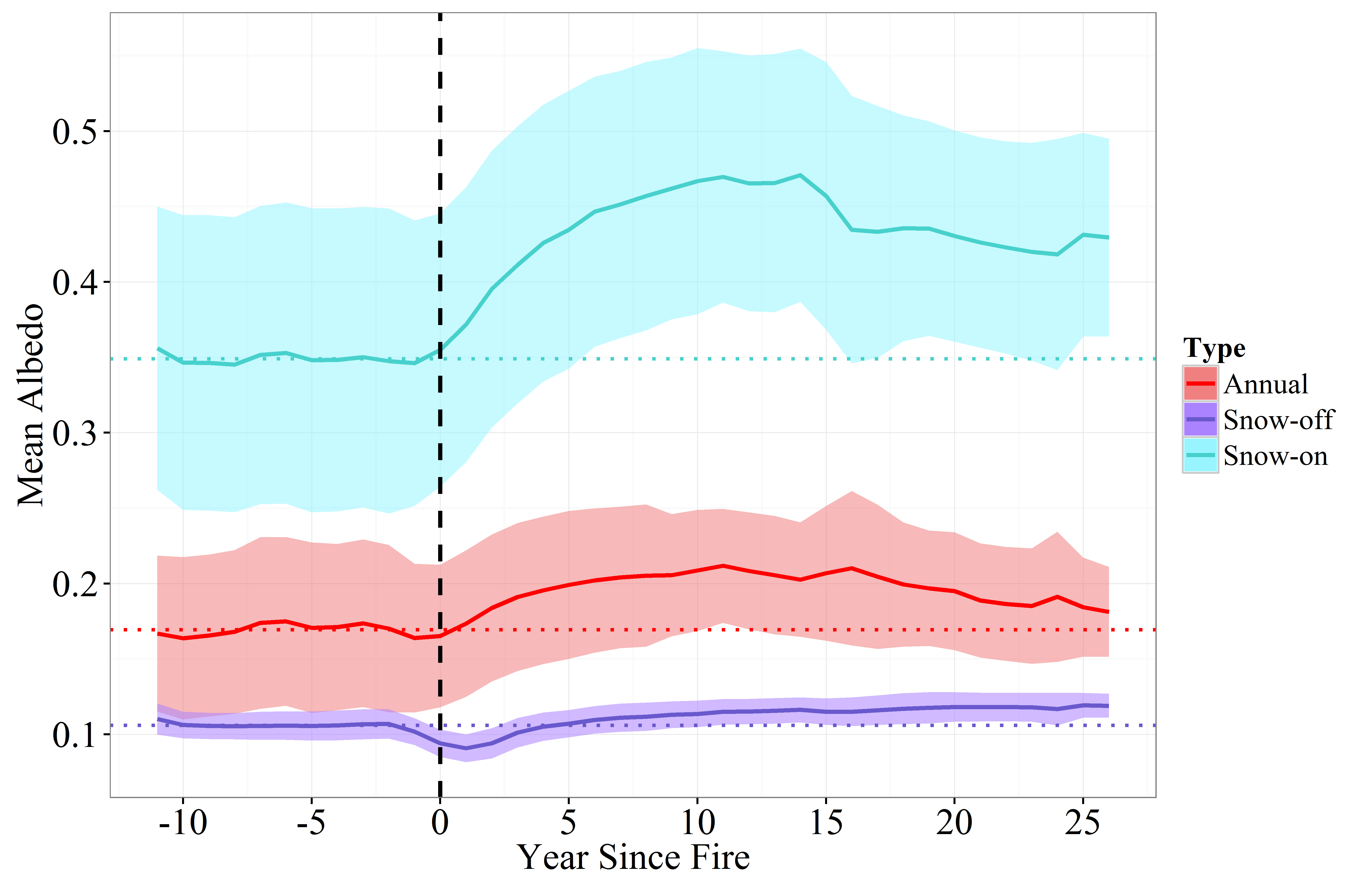A paper led by post-doctoral researcher Dong Chen, co-authored by UMD GEOG researchers Tatiana Loboda, Shunlin Liang and Yi Zhang, together with Tao He from Wuhan University, China, was published in Scientific Reports on 3/19. This paper, titled “Strong cooling induced by stand-replacing fires through albedo in Siberian larch forests”, focuses on the strong climatic impacts imposed by wildfires in the Siberian larch forests, which have been relatively understudied compared with those in the North American boreal forests.
The abstract of the paper reads:
The Siberian larch forests, taking up about a fifth of the global boreal biome, are different from the North American boreal forests in that they generally do not undergo a secondary succession. While wildfires in the boreal forests in North America have been shown to exert a cooling effect on the climate system through a sharp increase in surface albedo associated with canopy removal and species composition change during succession, the magnitude of the surface forcing resulting from fire-induced albedo change and its longevity in Siberia have not been previously quantified. Here we show that in contrast to previous expectations, stand-replacing fires exert a strong cooling effect similar in magnitude to that in North America. This cooling effect is attributable to the increase in surface albedo during snow-on periods. However, the observed earlier snowmelt in the region, and subsequently a longer snow-free season, has resulted in a warming effect which has the potential to offset the fire-induced cooling. The net albedo-induced forcing of the Siberian larch forests in the future would hinge on the interaction between the fire-induced cooling effect and the climate-induced warming effect, both of which will be impacted by the expected further warming in the region.


